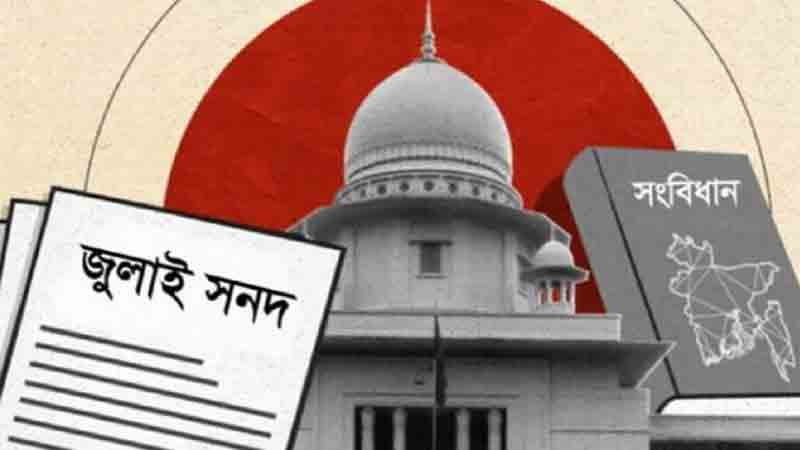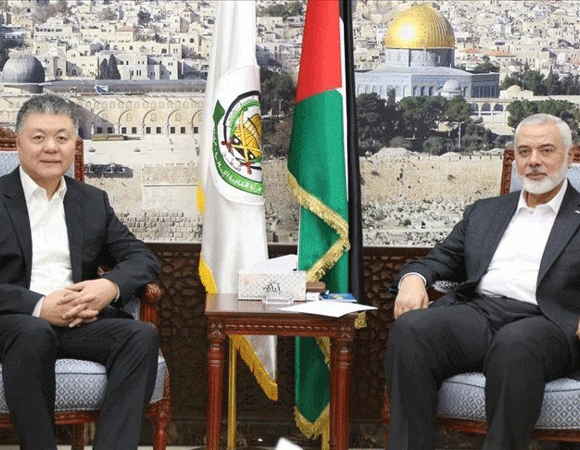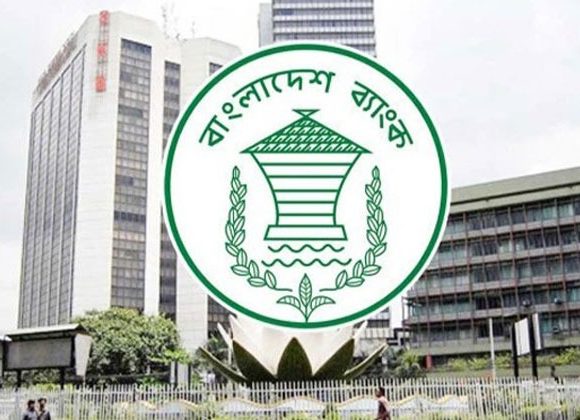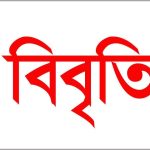President issues order to implement July Charter; gazette published

NEWS DESK
President Mohammed Shahabuddin has issued a formal order to implement the July National Charter (Constitution Reform), marking the completion of the July National Charter 2025 process.
The order was published in an official gazette on Thursday.
According to the gazette, a referendum will be held on the same day as the next national election, as part of the constitutional reforms outlined in the July National Charter. The referendum will include ‘Yes’ or ‘No’ votes on the four key issues discussed in the Consensus Commission.
If the ‘Yes’ vote prevails, a Constitution Reform Council will be formed with the newly elected members of parliament, who will have full authority over the reform process. The representatives elected in the 13th National Election will serve simultaneously as members of parliament and members of the Constitution Reform Council.
The council will complete the constitutional reform process within 180 days — or six months — from the date of its first session. The council will automatically dissolve upon completion of the reforms.
The council will have the authority to convene and adjourn its sessions, introduce and adopt reform proposals, and determine all related procedures. The National Parliament Secretariat will provide administrative and logistical support to the council.
Constitution Reform Council’s Structure
On the day, the newly elected members take oath as lawmakers, they will also take oath as council members in the same ceremony. The person administering the parliamentary oath will also administer the council’s oath.
In the first session, the members will elect a chairperson and a deputy chairperson. Until the election of office bearers, a senior member—chosen by consensus—will preside over the session. In the absence of both the chairperson and deputy chairperson, any council member may preside as per procedural rules.
The first session of the council will be convened within 30 days of the official announcement of parliamentary election results, similar to the convening of the first parliamentary session. A minimum of 60 members will be required to conduct council proceedings.
Any decision by the council will be determined by a majority vote. In case of a tie, the chairperson will cast the deciding vote.
According to the gazette, the council will enjoy the same legal status, privileges, and immunity as members of parliament. The council will ensure inclusion of the July National Charter into the Constitution as part of its implementation mandate.
Upper House Formation
The President’s order also mandates the establishment of an Upper House within one month after the constitutional reforms are completed.
The new chamber will be formed based on proportional representation (PR) according to the vote share received in the lower house election.
The tenure of the Upper House will extend from the date of its oath-taking until the dissolution of the lower house. No separate candidate list will be required for the Upper House at the time of national elections.
If any procedural difficulties arise in forming the Upper House, the government may issue directives, and the council will be empowered to enact necessary regulations.
The gazette further states that any reform passed by the council will be considered final and will not require any additional approval or endorsement.
The President has instructed that the amended Constitution be published in the government gazette without delay.

















